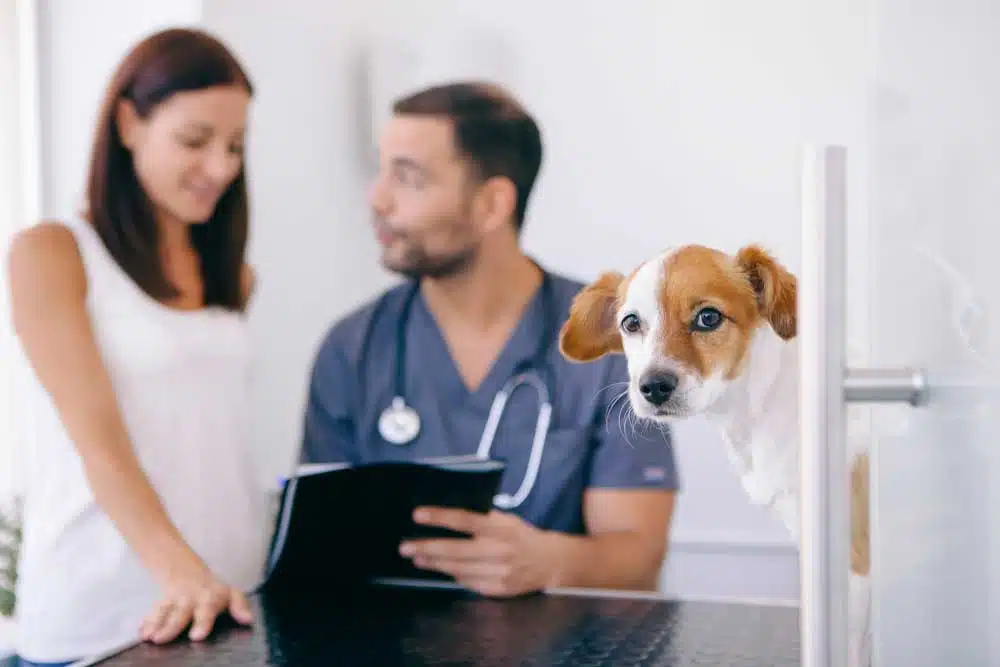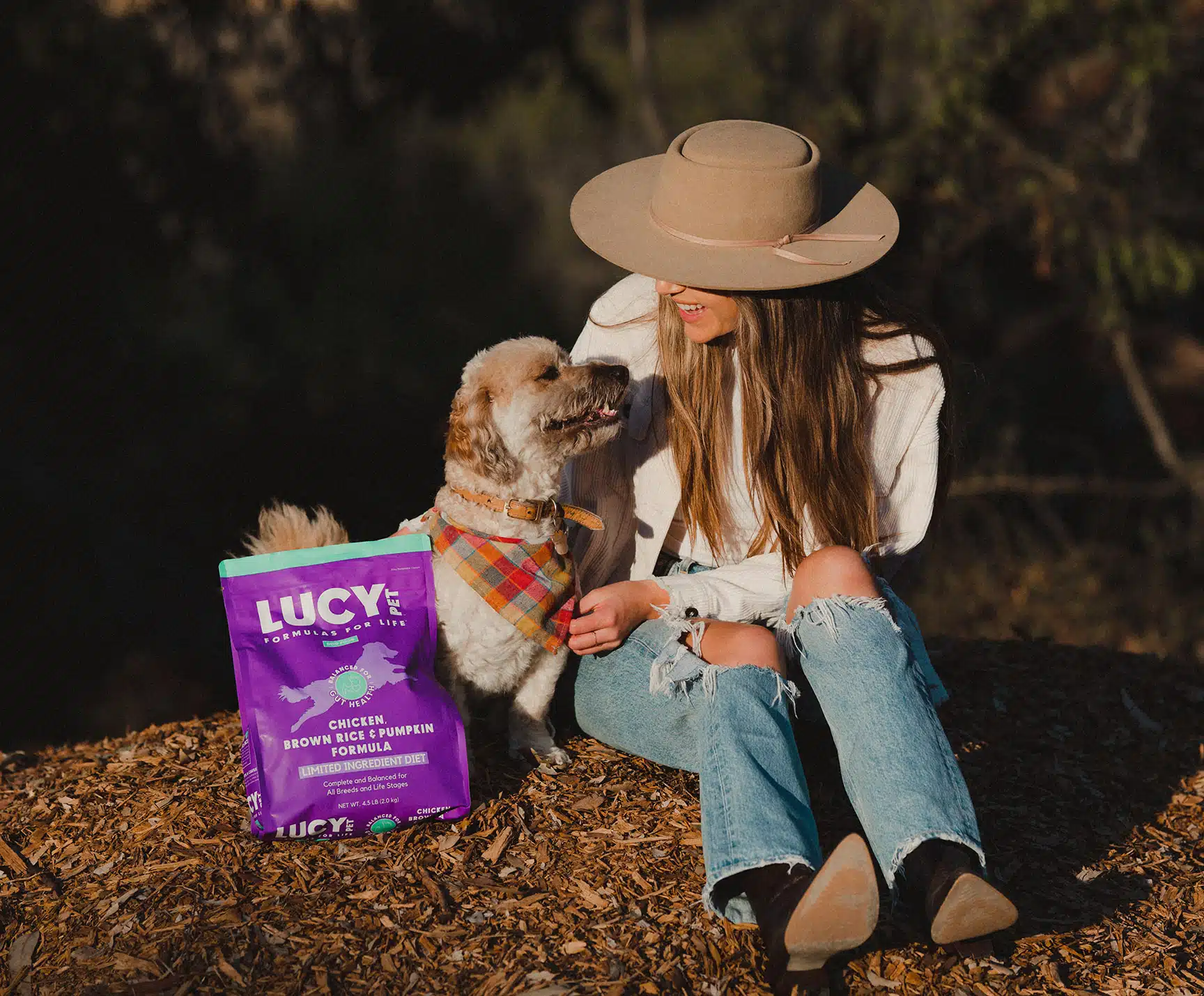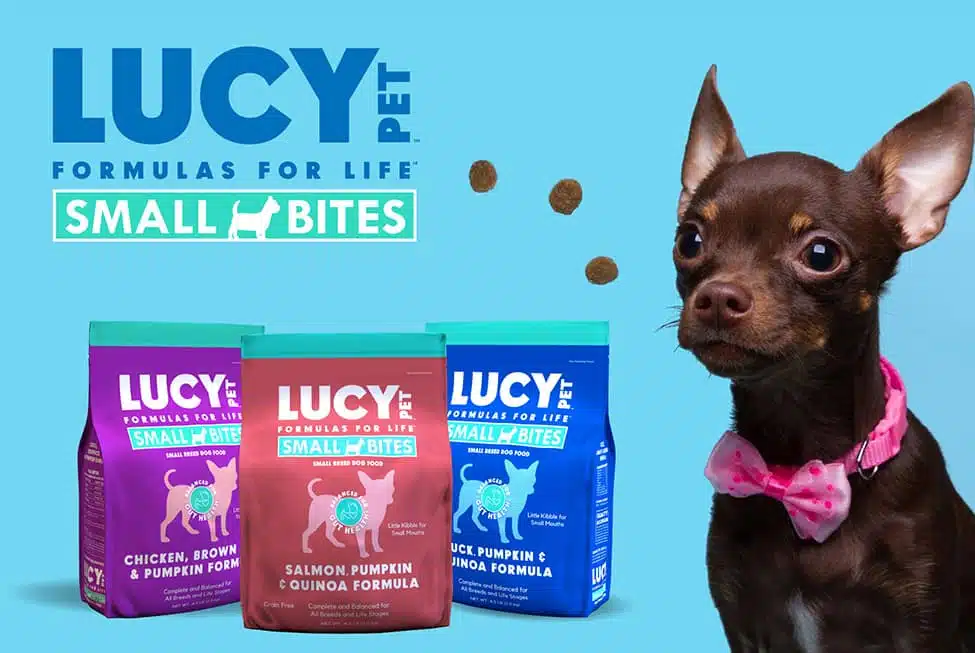
Prebiotic Fiber and Gut Health of Dogs
Within your dog’s digestive tract there are trillions of microorganisms, also known as bacteria, that play a massive and often underappreciated role in your dog or cat’s health. Just like in humans, this “gut microbiome” ends up affecting everything from your pet’s happiness to their physical and dietary health.
Unfortunately, some pet foods may not include the correct nutrients to successfully promote optimal health of the gut microbiome. That’s where prebiotic fiber comes in. It helps promote the growth of probiotics, or healthy bacteria, which help your dog or cat extract gut health benefits from the food they consume.
Importance of Gut Health for Dogs and Cats
It’s usually fairly obvious if your dog or cat is experiencing an imbalance in their gut health, but because the number of possible symptoms is so vast, many pet owners (and veterinarians) often misdiagnose the problem or assume the cause is something other than the gut.
Signs That Your Dog Might Have Issues with Gut Health
If your dog is experiencing poor gut health, it’s usually apparent that something is wrong. However, it can be hard to identify the exact cause. Some of the most common symptoms include:
- Weakened immune system, lethargic or chronic fatigue.
- Irritable Bowel Syndrome (IBS)
- Ongoing digestive issues such as diarrhea, gassiness, bloating, or vomiting
- Joint problems and pain
- Allergies (food or environmental)
- Skin problems that usually manifest as dermatitis or dandruff
- Behavioral issues that can range from whining to inexplicable aggression
The list of possible symptoms can be extensive, and most of these symptoms wouldn’t immediately strike you as a consequence of underperforming or imbalanced gut bacteria. However, the scope of this list should give you a sense of how important a healthy gut for dogs (and cats) is to their overall health.
Similar to a human body, your pet’s gut bacteria play a role in both their physical and emotional health, and prebiotic fibers are a scientifically proven way to increase functionality within the gut biome.
Reasons Why Your Dog or Cat Might Have Developed an Unhealthy Gut
In the same way that the symptoms of poor gut health are wide-ranging, so are the possible causes. However, the following three culprits are the most common:
- Poor diet
- Misuse of pet medications
- Stress
Poor Diet
The temptation to share human food with our pets, such as sharing our family dinner, salty snacks, or table scraps often cause digestive issues and result in poor health. A dog or cat’s nutrient requirements are only met by feeding a complete and balanced diet. Some pet parents over-feed pet treats, which are not made to be complete and balanced. Typically pet treats should not consist of more than 10% of their total food intake, so be sure to limit how many treats you feed per day.
Misuse of Pet Medications
Some prescription medicines (in particular antibiotics) can destroy the healthy and beneficial bacteria in the gut. This can disrupt the digestive process, making our pets sick and vulnerable to other health problems.
If your pet is prescribed medication, it is very important to properly follow the dosing instructions. Never share prescription medicines with other pets in the household without express permission from your vet. The dose is often based on your pet’s health record, as well as other factors such as age, body weight, and body condition. The gut can be negatively affected by incorrectly administered medicines, so be sure to read and follow the directions carefully.
Experiencing Stress
Many new pet owners don’t realize that their dog or cat can experience high levels of stress, but any experienced pet owner will tell you otherwise. Just like humans, there are many triggers that can set off your dog’s stress, including:
- Moving to a new home or traveling: Most pets enjoy the familiarity and comfort of a consistent environment. The scent of their home, where to find food and water bowls, their favorite bed or toys, the common noises, lighting, etc. When the environment changes or is unfamiliar, it can cause stress to some dogs and cats too.
- Loneliness: Dogs that are frequently left at home for long periods of time may experience a high volume of stress. Just like humans, some dogs are better at spending time alone than others. In many cases, a dog’s ability to handle loneliness is predicated on its breed or their training.
- Lack of exercise: Like humans, dogs can get antsy, and without a physical outlet for their energy, they can experience stress.
- Being ignored: Ignoring your pet when they want emotional attention is one possible way to catalyze their stress response. Repeatedly ignoring your pet, also known as neglect, can be emotionally devastating for your pet. You may find that giving your pet affection relaxes you too.
While stress might seem like an emotional response to stimuli unrelated to gut bacteria, studies have established a convincing link between the two. So, if your pet is demonstrating possible signs of poor gut health, stress may well be another factor to consider.
Addressing Gut Health: Prebiotic Fibers vs Probiotics
In the quest to improve your dog or cat’s gut health, most veterinarians who correctly diagnose gut problems will encourage the use of super-premium pet foods with a healthy blend of prebiotic fiber, quality proteins, fats and carbohydrates.
Some vets talk about probiotics as well as prebiotics. Understanding the differences between prebiotics and probiotics is important if you truly want to improve your dog or cat’s health.
Probiotics:
- Live bacteria. May need to be refrigerated to stay alive.
- Die quickly due to temperature, acidity and time
- Keeps “bad” bacteria at bay and supports immune system health
- May not survive long in the harsh digestive tract.
Prebiotics:
- Plant based food ingredients that ferment in the colon providing nourishment for the live probiotic bacteria that reside in the colon.
- Not affected by temperature, acidity, time
- Resilient and unaffected by conditions in the gut, and reach the large intestine.
- Fermenting prebiotics create short-chain fatty acids, which inhibit “bad” bacteria from growing because the lower gut ph.
- Evens out fluid and electrolyte levels
Prebiotics work by catalyzing the growth of natural probiotic organisms in your dog’s gut. While probiotics do the heavy lifting in terms of improving your dog’s gut health, alone they are somewhat fragile and don’t survive very long given the acidity and temperature in the gut. When prebiotics are consumed, they create conditions in the gut that allow probiotics to survive longer.
Given the fragility of probiotics, it makes sense why many pet owners choose to feed their pets foods with a blend of prebiotics instead of a food with probiotics. Consuming both is also an option, though this may be unnecessary.
4 Ways Prebiotic Fibers Can Improve Your Dog’s Health
We’ve established that prebiotic fiber intake can be helpful for your dog or cat, but how exactly does it improve gut health, and what can you expect once you start feeding these fibers to your pet? It’s important to remember that all dogs (and cats) are different and their reactions to prebiotics may also differ.
Here are four of the most common health benefits of feeding a food with Prebiotic Fibers.
Improved Immunity
Contained within the gut is an organ called the “gut-associated lymphoid tissue,” also known as GALT, which is responsible for a large percentage of the body’s ability to resist harmful bacteria. When prebiotic fibers are introduced to the GALT, it can improve your dog or cat’s ability to withstand the onslaught of “bad” bacteria by improving their natural immunity.
When the GALT is healthy, it can swiftly minimize the activities of the bad bacteria.
Promote Probiotic Growth
Probiotics are largely responsible for the health and well-being of your pet’s microbiome. However, they are inherently fragile and don’t last long in the harsh conditions of the gut. Prebiotics help promote the growth and sustain the positive effects of probiotics, namely by outnumbering the bad bacteria and regulating the bacterial balance in the gut.
A healthy balance of good bacteria in the gut will also improve your dog or cat’s ability to extract healthy nutrients from food, and can even help improve your pet’s mood, via something known as the gut-brain axis.
Preventing Leaky Gut Syndrome
One of the most common side effects of poor gut health is “leaky gut syndrome,” which can affect dogs, cats and humans. When your pet is suffering from leaky gut syndrome, their ability to process nutrients is impaired, and it’s more likely that pathogenic bacteria and toxins will pass through the walls of the intestine and into the bloodstream.
When this happens, your pet can experience a litany of negative side effects, many of which could lead to illness or serious disease. In the short term, they may also become more “accident” prone—which doesn’t bode well for your carpets.
Enhance Nutrient Absorption
Dogs and cats with healthy GI tract have no problem absorbing nutrients from the food they consume. However, if your pet is experiencing poor gut health, they may have a hard time extracting those nutrients—including essential minerals and vitamins from their food. Bacteria improve this ability, that in turn, can do wonders for your dog or cat’s overall health; prebiotics are the best way to ensure that their bacteria flourish in the gut.
Better Balance in the Gut
When prebiotics reach the large intestine, the production of short-chain fatty acids actually creates an environment that favors healthful bacteria. Science shows that this reduction in ph makes the gut less favorable for bad bacteria to thrive and, at the same time, is the ideal environment for beneficial bacteria to flourish.
Final Thoughts on Prebiotic Fibers and Gut Health
Use of a variety of prebiotics as part of a pet food kibble recipe is an effective way to improve the overall health and well-being of dogs and cats. There are a number of different pet foods with prebiotics, but look for brands that incorporate a blend of various prebiotic fibers as part of the formula.
Here at Lucy Pet, we pride ourselves on offering precisely-formulated pet food guided by science and nutritional research. Our Prebiotic Balanced Fiber™ blend provides the perfect combination of varied nutrition to promote a healthy gut. Check it out for yourself today!
Sources
Field, C. J., McBurney, M. I., Massimo, S., Hayek, M. G., & Sunvold, G. D. (1999, December 30). The fermentable fiber content of the diet alters the function and composition of canine gut associated lymphoid tissue. Retrieved June 20, 2019, from https://www.ncbi.nlm.nih.gov/pubmed/10628676
Kelly, J. R., Kennedy, P. J., Cryan, J. F., Dinan, T. G., Clarke, G., & Hyland, N. P. (2015, October 14). Breaking down the barriers: The gut microbiome, intestinal permeability and stress-related psychiatric disorders. Retrieved June 20, 2019, from https://www.ncbi.nlm.nih.gov/pmc/articles/PMC4604320/
Peralta, J. (2019, February 20). Probiotics v -prebiotics: Does your dog need both? Retrieved June 20, 2019, https://www.dogsnaturallymagazine.com/probiotics-vs-prebiotics-does-your-dog-need-both/







Leave A Comment
You must be logged in to post a comment.